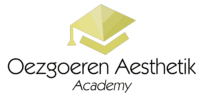How do I become an alternative practitioner for aesthetic medicine?
From alternative practitioner to aesthetic specialist: the path to becoming an alternative practitioner for aesthetic medicine in Germany
More and more people are looking for alternative healing methods that take equal account of the body, mind and soul. This growing interest has led to an increasing demand for alternative practitioners. If you are interested in holistic health and alternative therapies, becoming an alternative practitioner could be just the thing for you. And if you’re also interested in aesthetic medicine, you can become an alternative practitioner for aesthetic medicine. In this blog article, I will show you how you can become an alternative practitioner for aesthetics in Germany.
Research and information procurement:
Before you embark on the path to becoming an alternative practitioner, it is important that you inform yourself thoroughly about the requirements, training and legal framework. Research the laws and regulations in your country or region to understand what requirements must be met to work as an alternative practitioner.
Training as a non-medical practitioner:
Training to become an alternative practitioner in Germany usually takes place at private alternative practitioner schools or specialist schools for naturopathy. The duration of training can vary depending on the school and teaching model, but is usually between 1.5 and 2 years. During your training, you will acquire extensive basic medical knowledge that is required for practicing medicine.
The curriculum covers topics such as anatomy, physiology, pathology, pharmacology, diagnostics, differential diagnosis and general medical science. In addition, alternative therapies such as homeopathy, phytotherapy, acupuncture, osteopathy, massage therapy and nutritional counseling are also covered. Some schools also offer special courses in aesthetic medicine, which can help you to specialize in this field.
Nevertheless, it should be mentioned at this point that structural training is by no means mandatory, even if the private providers of such training centers may like to suggest this. You can also prepare for the Heilpraktiker examination completely independently. Heilpraktiker is not a state-recognized training profession and the training itself is not regulated by law. However, the professional title of alternative practitioner is protected and recognized by the state. Passing an official medical examination is the only requirement to become an alternative practitioner.
Examinations for recognition:
After completing your training or self-study, you must pass the official medical examination to prove your knowledge and skills as an alternative practitioner. These are usually organized by the relevant health authorities.
In order to take the Heilpraktiker examination in Germany, there are certain requirements that must be met. The exact requirements may vary slightly depending on the federal state, as alternative practitioner training in Germany is not centrally regulated and falls under the jurisdiction of the individual federal states. However, here are some general requirements:
Minimum age: As a rule, you must be at least 25 years old to be admitted to the Heilpraktiker examination.
School education: You usually need a secondary school leaving certificate or equivalent.
Health aptitude: You must prove that you are medically fit to practise the profession of alternative practitioner. This usually includes a medical certificate confirming that there are no health concerns.
Reliability: You must have the necessary reliability to be able to practice the profession. A police clearance certificate is often required to ensure that you have no criminal record.
It is important to note that working as an alternative practitioner in Germany is subject to certain legal frameworks and there may be regional differences. It is recommended that you find out about the specific requirements and regulations in your federal state prior to training and examination.
The examination consists of a written and an oral part.
The written part usually comprises multiple-choice questions on medical topics such as anatomy, physiology, pathology and pharmacology. This part is used to test your theoretical knowledge.
Once you have passed the written part, the oral part of the exam follows. Here you will be questioned by a medical officer on various medical topics. You will be asked general questions as well as specific questions about alternative healing methods. The medical officer wants to make sure that you have sufficient knowledge to take on the responsibilities of an alternative practitioner and protect the health of your patients.
Further training and specialization as an alternative practitioner for aesthetic medicine:
After successfully passing the official medical examination, you will receive a license to practice medicine as a non-medical practitioner. If you would like to specialize in aesthetic medicine, it is advisable to attend further training and courses that focus on this area. There are various schools, institutes and organizations that offer such training courses. These courses will provide you with specific knowledge about aesthetic techniques and treatments such as wrinkle injections, skin rejuvenation and more. In particular, it is important to be adequately prepared for risks and side effects and to be prepared for emergencies.
On this page we also offer corresponding online training courses for alternative practitioners and doctors on our website. However, prospective alternative practitioners can also take a look at our courses to prepare for their future work. Take a look at our course overview.
Gain practical experience and network:
Practical experience is crucial to establishing yourself in aesthetic medicine. Look for opportunities to work as an assistant or on an internship with experienced aesthetic practitioners. This will give you valuable insight into the practice and the opportunity to develop your skills and knowledge. Connect with other aesthetic medicine professionals, attend conferences and events to stay up to date and exchange ideas with like-minded people.
Conclusion:
The path to becoming an alternative practitioner for aesthetic medicine requires both a successful official medical examination and specific training and specialization in aesthetic medicine. It is important to observe the legal regulations and requirements in Germany and to continuously complete further training in order to develop further and keep up to date with the latest developments in aesthetic medicine. With passion, commitment and a holistic approach, you can realize your dream and help others improve their aesthetic well-being.
We would be delighted to welcome you to our aesthetics courses to support you on your way!
This article does not constitute legal advice and is not a substitute for such advice. The article does not claim to be up-to-date, complete or correct. We accept no liability for damage caused by incorrect information. If in doubt, seek legal advice.

